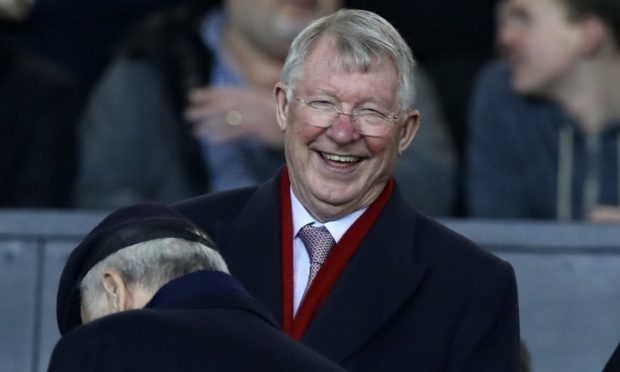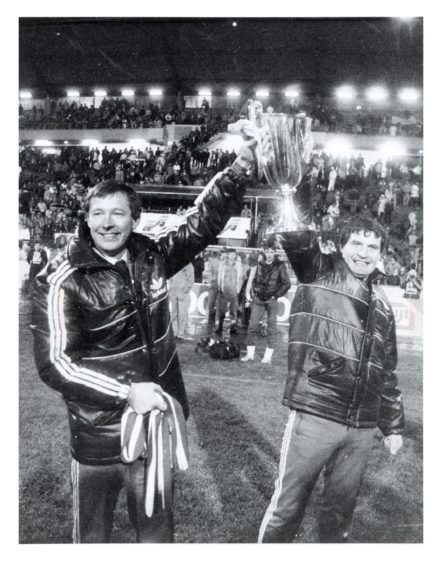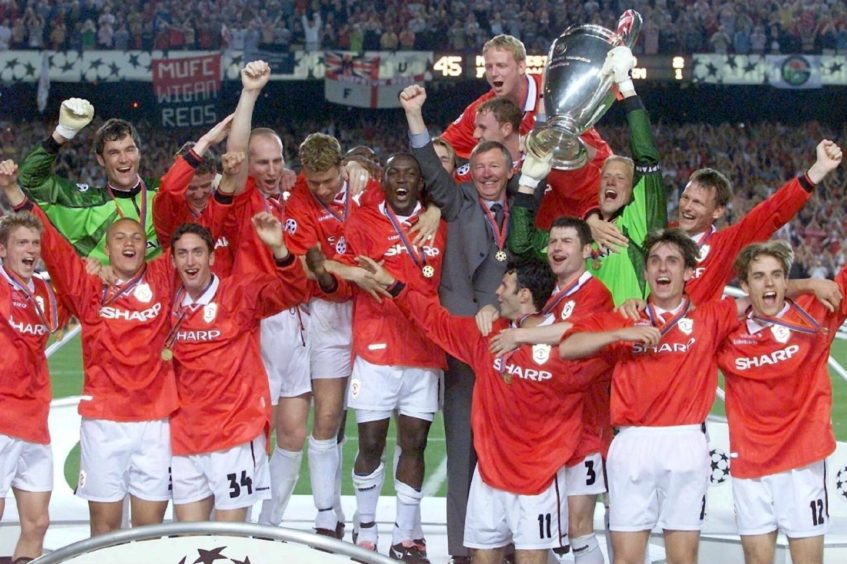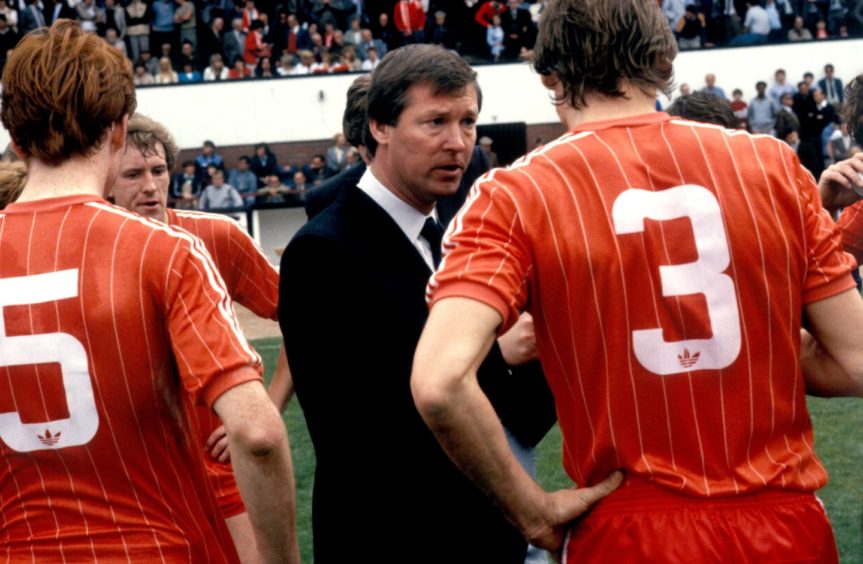Sir Alex Ferguson has opened up on the “absolutely terrifying” period where he thought he had lost his memory and would be left unable to speak.
Legendary Aberdeen boss Ferguson, 79, told the story to host Edith Bowman in a pre-recorded question and answer session as part of this year’s Glasgow Film Festival.
A new documentary title Sir Alex Ferguson: Never Give In, directed by Fergie’s son Jason, premiered to an online audience of 1,000 people this evening as part of the festival.
The film was in the early planning stages in 2018 when Ferguson, who led the Dons to every domestic honour between 1978 and 1986 as well as the European Cup Winners’ Cup and Super Cup, suffered a brain haemorrhage in 2018.
Fears Sir Alex had at the start of his recovery saw the documentary take shape around the theme of memories.
Ferguson said: “One of the first things I said the day after the operation when my family came to see me was (about) my memory.
“I’ve survived with having a great memory all my life.
“The next week Jake and Harvey (two of Ferguson’s grandchildren) came up to see me and I lost my voice. I couldn’t get a word out and it was absolutely terrifying.
“Everything was going through my mind – Is my memory going to be back? Am I ever going to speak again?
“The speech therapist came and told me to write down all the members of my family, all the members of my football team, all the teams you’ve played against. She asked me questions about animals, fish, birds. Eventually after 10 days my voice came back.
“I realised, having gone through all that, my memory was fine.”
Jason revealed he had being conducting audio interviews with his father about his life for 18 months when he was asked to direct the film, as he was “best placed to get the most honest and open content from him”.
He agreed to take the helm just hours before receiving word the legendary Scottish manager, who led Manchester United to 13 English top-flight crowns and two Champions League titles, had taken unwell.
Jason said: “The phonecall from (producers) Andrew (Macdonald) and John (Battesk) was in May 2018.
“I asked them for 24 hours to think about it, I got back on the phone to them the next day to tell them I was up for it, then that night started work on my first draft of a treatment.
“I finished that about 1.30am in the morning, went to my bed and then five hours later the phone rang and it was my mum.
“She said: ‘Your dad’s had a fall’. And that was the brain haemorrhage.
“That obviously put things on hold for a while, but – in relation to the film – ultimately, it’s one of the key moments of his life, so becomes one of the key moments of the film.
“Structurally, it brought another timeline and brought the whole theme around memories to the table.”
The film begins with the brain haemorrhage, including the 999 call, and explores Sir Alex’s life and career before closing on his poignant return to Old Trafford, where he was boss for close to three decades after leaving Pittodrie before retiring in 2013.
Answering fan questions put to him by Bowman, Ferguson puts his unrivalled managerial success down to a love of football, but also his mindset that “nothing else mattered” apart from winning.
He talks about his “inner determination” and “mental toughness” and how he had an “instinct” to see if players had not just natural football ability, but the other traits to be successful.
Ferguson said: “I believe in instinct. I had a good instinct about players, I had good instinct about watching players who I maybe wanted to buy.
“I knew, looking at certain players I could see traits. They would’ve told me they were Manchester United players or Aberdeen players or St Mirren players – I could see that in certain players I watched.
“I also had an instinct when playing a certain team. I think there’s something about this game, which means I’m not going to play a certain player or play other players.
“I won’t say it’s intuition, but instinct.”
Sir Alex Ferguson: Never Give In is in cinemas from May 27 and on Amazon Prime from May 29.



